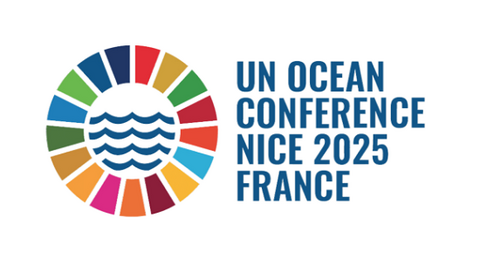
First International Forum of Marine Universities : Call for Panelists
Prior to the UNOC 3 conference to occur in Nice on June 9th-13th 2025, in partnership with Université Côte d’Azur, Sorbonne University and the French Network of Marine Universities, the First International Forum of Marine Universities will be organized. We are looking for three to five persons per panel offering a broad and international view on the following topics. If you are interested please fill the form to apply before April 20.
Apply by April 20 !
https://lime3-app3.sorbonne-universite.fr/index.php/623292?lang=fr
This International Forum will gather worldwide universities with the objective to “Reinforce transmission of knowledge and education to improve scientific training and enhance awareness of civil society to face ocean challenges”.
It will be the role of the International Forum of Marine Universities to :
- Bring to light the importance and the strong implication of worldwide universities dedicated to marine and maritime sciences and technologies in the perspective of the achievement of SDG 14 and in line with the Ocean Decade strategy and over;
- Promote internationalization, academic collaboration, excellence in education and learning in marine and maritime domains, ocean literacy and service to society considering benefit to people, nature and economy;
- Promote international cooperation between marine universities to develop training capacities for students but also, and maybe overall, to ensure lifelong learning;
- Promote the development of international exchanges of personnel and people (PhD students, doctors, professors, technical personnel), in order to cross-fertilize and improve formation of marine science personnel;
- Promote the development of international exchanges of knowledge and culture (for instance, by organizing formation and education sessions of various possible types such as symposia, summer schools, seminars, etc.)
The International Forum of Marine Universities will be a key in training scientists, citizens, stakeholders and decision-makers through exchanges of practices to benefit from new systemic and transdisciplinary approaches of learning marine sciences taking into account the diversity of cultural and socio-economic contexts. It will of course have to consider all forms of existing international programs and networks in which marine universities participate and that cover actions complying with the mission of the Forum.
The First meeting of the International Forum of Marine Universities will be organized in Nice in the Centre Universitaire Méditerranéen on June 7, 2025, from 9:30 am to 12:30 pm. At the core of the meeting, three international panels will initiate discussions, leading to a final common declaration and recommendations to the UNOC.
Panel 1. Interdisciplinarity in Ocean Studies
How to contribute to SGD 14 achievement through a systemic and transdisciplinary approach of learning marine sciences?
Physics, mathematics, chemistry, biology, geography, sociology, economics, humanities and law are traditionally taught as separate disciplines in most universities. The ocean, however, is not a discipline in itself—it is a vast and complex subject studied through the lens of multiple fields.
As a result, interdisciplinarity is both essential and challenging. Addressing the broad and intricate issues outlined in SDG 14 requires input from various disciplines to reach a fully integrated perspective. Yet students must first develop expertise in at least one field before fully engaging in ocean sciences.
How are universities tackling this challenge? Should ocean education begin as early as possible to foster interdisciplinary thinking from the start? Or, conversely, should it be reserved for postgraduate studies, ensuring that students first acquire a solid foundation in a specific discipline before delving into ocean sciences? How important is training at sea to reach these goals? What are current examples throughout the world?
Panel 2. Universities and the Blue Economy
How to strengthen the relationships between universities and the socio-economic world in the frame of the development of a regenerative blue economy?
Universities play a crucial role in preparing the next generation of researchers in ocean sciences and humanities. At the same time, the blue economy is expanding rapidly, creating a growing demand for engineers, scientists, managers, and legal experts who are well-versed in ocean challenges, technologies, and regulations. These needs span various sectors, including fisheries, aquaculture, offshore energy, tourism, ecosystem preservation, coastal urban development, and infrastructure.
In this context, the forum will explore the crucial role that universities can enhance in advancing sustainable practices within the blue economy. How should the dialogue between universities and key stakeholders in the blue economy—whether private companies, government agencies, or NGOs—be structured to ensure the most relevant knowledge and skills are better delivered? Furthermore, how can these stakeholders support and stimulate universities in their fundamental research efforts, an area with little immediate economic impact but essential for driving innovation and advancing applied ocean sciences?
Panel 3. Strengthening Ocean Science Education processes
How to amplify the role of universities in lifelong learning and capacity building to reinforce transmission of knowledge at a worldwide scale?
Ocean is a common good of humanity, and ocean sciences have no borders. What happens in the Arctic influences the Tropics, and vice versa. Similarly, knowledge about the ocean must flow freely, as addressing ocean-related challenges requires a global and coordinated approach.
In this context, where ocean sciences are developing, how can we build and strengthen the acquisition of these new skills? What role do universities play in this capacity-building process? How can we identify and address the specific needs of local and regional contexts? What methods and resources are available to support this initiative?
Where should we start? By raising citizen awareness? Educating children? And more specifically, in our universities, at what grade should this capacity-building begin: at the doctoral level, to train future professors and researchers, or at the undergraduate level, to promote a gradual and locally rooted development?
